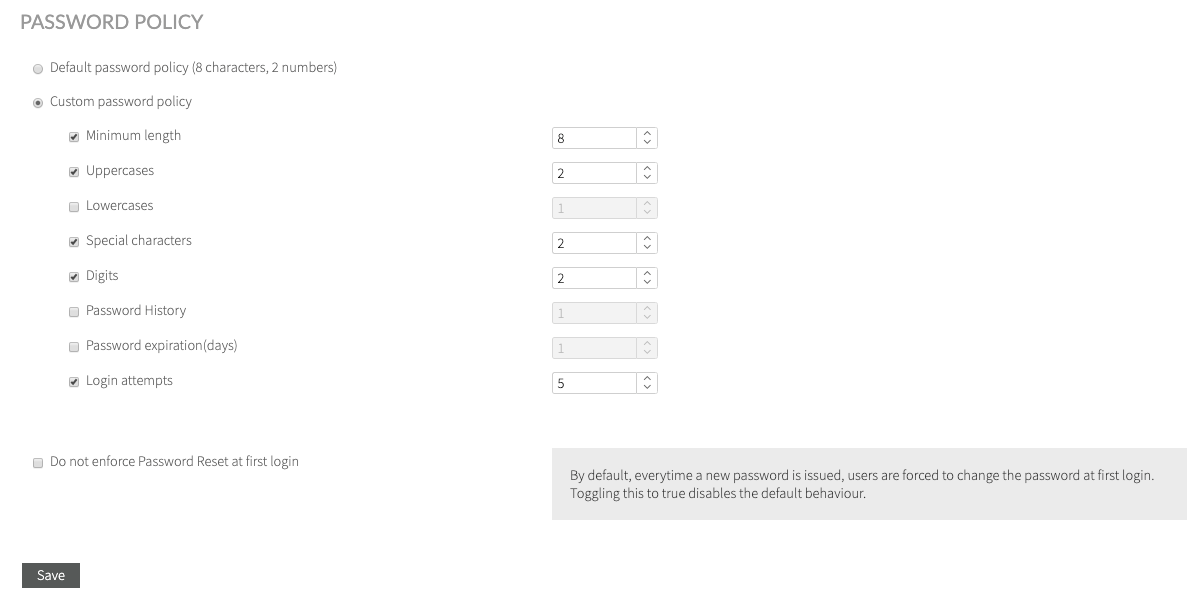This page explains how to manage all kinds of policies related to the account, especially those related to passwords, audit results, privacy, and user accounts.
Contents:
Account Policies
Go to Account Management > Account Policies to set a password policy for your account.
There is a default policy (8 characters, 2 numbers), but this policy is customizable.
Password strength
You can configure the strength (complexity) of the passwords by specifying the following rules:
- The minimum password length.
- The number of uppercase and lowercase letters, digits, and special characters that a password should contain.
Password History
Enforcing the Password History policy sets how often an old password can be reused. You can define the number of previous passwords remembered, discouraging users from reusing previous passwords and preventing them from alternating between several common passwords.
Password expiration (days)
Apply this policy to determine how long users can keep a password before they are required to change it, thus forcing users to periodically change it. Once the password expiration date is reached, the user redirects to a “change your password” page.
Login attempts
Setting the maximum number of allowed login attempts protects against “brute-force” or dictionary-based attempts to guess passwords. You can specify a maximum number of consecutive login attempts allowed after the account is automatically locked.
Only the Kiuwan owner (or a Kiuwan user with Users Management privilege) can enable the locked account.
Do not enforce Password Reset at first login
By default, whenever Kiuwan generates a new password, the user has to change the password for the first time. When the option “Do not enforce Password Reset at first login” is set up, this behavior is disabled.
You can create a new password in the following situations:
- Creation of a new user.
- Resetting a password (by the administrator).
- Following the “Forgot my password” process on the main login page.
